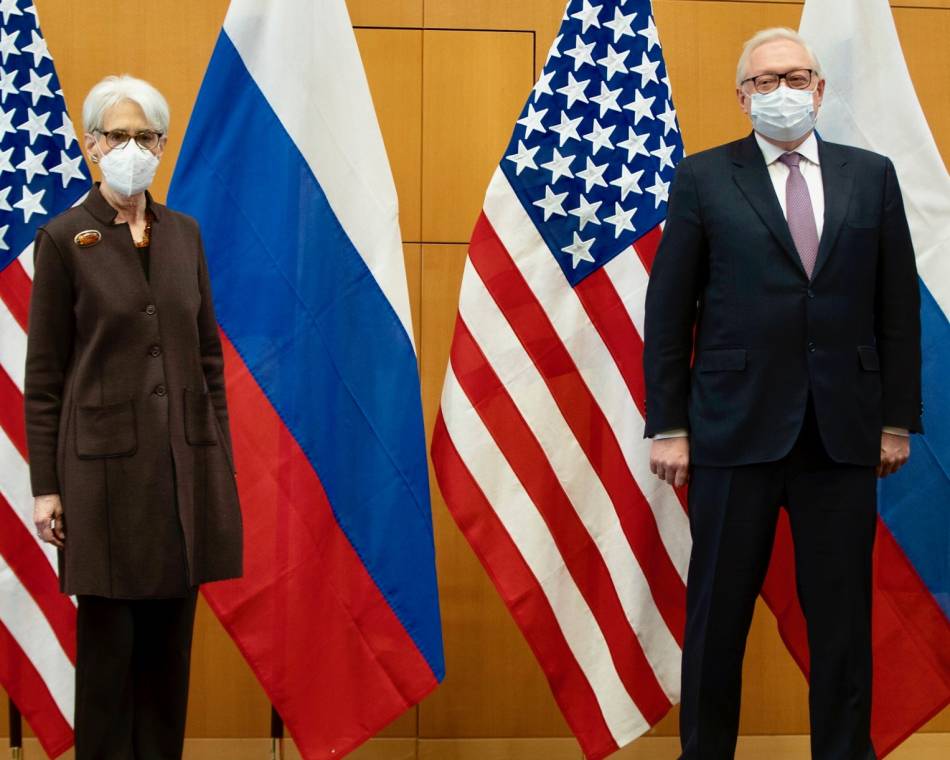GENEVA (AN) — Diplomats for the United States and Russia were stalemated after talks on Monday over Russia's troop buildup on the border with Ukraine, the first in a series of high-stakes discussions that could be vital to Europe's future security.
Expectations were kept to a minimum that any breakthrough could be achieved by the delegations led by Russian Deputy Foreign Minister Sergei Ryabkov and U.S. Deputy Secretary of State Wendy Sherman during their meeting at the U.S. Mission to International Organizations in Geneva, a short distance from the United Nations' European headquarters in the Palais des Nations.









